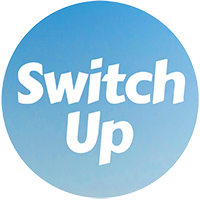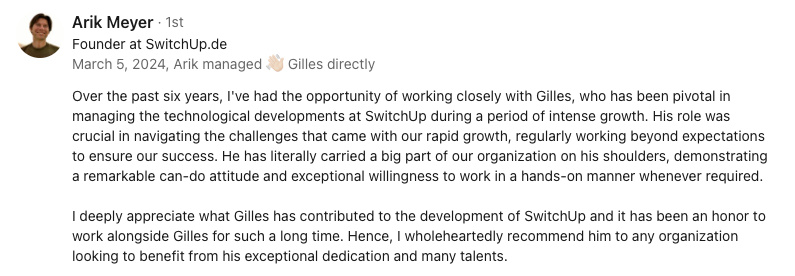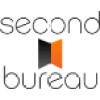Abstract:
As the workplace continues to transform, the need for individuals to adapt and grow their skill sets has never been more crucial. This necessity has given rise to the concept of lifelong learning and micro-credentialing. These micro-credentials, often represented as digital badges, provide a flexible and efficient way for professionals to demonstrate their learning and achievements in specific skill areas. This trend not only supports career progression but also allows organizations to more accurately assess the capabilities of their workforce. By emphasizing skill development through bite-sized, validated learning experiences, both employees and employers can navigate the future of work with confidence. This article explores how micro-credentialing is shaping professional growth and the way organizations assess potential and current employees, highlighting its importance in a dynamic work environment.
The Modern Workplace: A Playground for Continuous Learning
Imagine the workplace as a vast, dynamic playground where the slides and swings are constantly shifting, and the ground itself transforms beneath your feet. In this ever-shifting scenery, the old adage of "learn once, apply forever" has gone the way of the dodo, and in its place, an acute need for continuous growth and learning has emerged. Welcome to the modern professional setting – a place where the only constant is change itself. Amidst this whirlwind of transformation, an ingenious approach to lifelong learning has been gaining traction: micro-credentials. This innovative concept shuns the conventional, bulky degrees in favor of bite-sized, yet highly specialized learning chunks, enabling individuals to showcase their prowess in specific skills through nifty digital badges.
These micro-sized marvels of the educational world represent a seismic shift in how professionals approach personal and professional development. They serve as proof-positive of specific competencies and know-how, tailor-made for the digital age where showcasing your skill set is as important as possessing it. As a teaser to the broader implications of this trend, envision a workplace where the demonstration of ongoing learning is not just encouraged but celebrated, and the ability to swiftly adapt and acquire new skills becomes the hallmark of professional excellence. This introduction sets the stage for a grand exploration into how micro-credentials are reshaping the landscape of professional development and workplace dynamics, opening new doors for both individuals and organizations alike.
Benefits of micro-credentialing for individuals
Picture this: you're a knight in the realm of your career, seeking the holy grail of advancement in a kingdom that frankly, doesn’t always play fair. How do you stand out? Enter the dragon, or rather, the answer: micro-credentials. These nifty knick-knacks of the learning world are not just another addition to your professional toolkit; they are turbochargers for career acceleration in a hyper-competitive job market.
Flexibility and Accessibility: Your Learning, Your Pace
Forget the age-old, one-size-fits-all approach to education. Micro-credentials are like those trendy custom-fit jeans — designed to suit your specific needs and lifestyle. Whether you’re an early bird who does their best learning with the dawn chorus, or a night owl who finds inspiration under the moonlight, the flexibility of micro-credentialing allows you to develop targeted skills at your own pace and on your terms. Imagine mastering blockchain basics while waiting for your morning coffee to brew, or diving into data analytics post-dinner. Suddenly, upgrading your skill set isn’t just feasible; it’s as easy as pie (and just as satisfying).
Validation and Professional Credibility: The Proof Is in the Pudding
In a world where "I’m an expert at [insert skill here]" is a common refrain, how do you make your professional worth stand out? Micro-credentials act as the neon signs of the professional world, illuminating your specific competencies and hard-won skills. These digital badges are not mere adornments for your LinkedIn profile; they’re verifiable proof that you can walk the walk. It’s one thing to claim you’re a whiz at Python programming or a guru in graphical design; it’s another to have a micro-credential that says, "Yes, indeed, they really are!"
Now, imagine the impact of these micro-credentials on your career trajectory. Stories abound of individuals who, armed with a collection of these digital badges, have vaulted over the competition. There’s the tale of John, who pivoted from a generalist role in marketing to become a sought-after digital marketing analyst, thanks to specialized micro-credentials. Or Sarah, who bolstered her burgeoning freelance career with badges that spotlighted her unique blend of creative and technical skills, capturing clients’ attention like moths to a flame.
So, what do micro-credentials offer to the individual? In essence, they’re your personal branding powerhouse, your secret weapon in the quest for career advancement. They tell the world not just that you’re committed to your professional growth, but also that you have the up-to-the-minute skills to back it up. Micro-credentials are more than just educational accessories; they’re game-changers, enabling you to navigate the career jungle with agility, precision, and a dash of panache.
Micro-credentials from an Organizational Perspective
Flipping the script to the viewpoint of organizations, it becomes evident that micro-credentials are not just fancy digital trinkets for employees to collect but rather a strategic component of talent management. For businesses, especially in the tech and engineering sectors where specific skill sets can be the difference between crashing and soaring, understanding and utilizing micro-credentials offer a path to tuning the workforce to the fine pitch of efficiency and innovation.
A Symphony of Skills: The Organizational Benefits
Imagine an orchestra where each musician’s capabilities and potential contributions are crystal clear, enabling the conductor to create harmony and avoid cacophony. Similarly, micro-credentials provide organizations with a quantifiable and detailed understanding of their workforce's capabilities. This clarity allows for:
- Precise Skill Assessment: It’s akin to knowing exactly what tools are in your toolbox before you start fixing a spaceship (or an office coffee machine). Micro-credentials help pinpoint skill gaps and talents in the workforce, enabling better project assignments and team compositions.
- Targeted Employee Development: Like a bespoke tailoring service for your career, organizations can offer personalized learning and development paths, ensuring employees not just grow but thrive.
- Future-Proofing the Workforce: In the relentless march of technology and market demands, staying ahead means evolving. Micro-credentials signal which employees are robots in disguise, ready to transform and roll out to meet coming challenges.
But don’t just take our word for it; the corporate world is littered with success stories. Tech giants and nimble startups alike have woven micro-credentials into the very fabric of their HR practices. IBM, for instance, has been a poster child for this movement, launching its own digital badge program to recognize skills and achievements across a spectrum of subjects and skill levels. The program not only boosted employee engagement and learning but also served as a beacon attracting like-minded, forward-thinking talent.
Or consider the case of Siemens, which leveraged micro-credentials to bolster its technical training programs, ensuring that employees not just keep pace with, but lead in, areas such as automation and digital manufacturing. This strategic approach to skill verification has enabled Siemens to not just predict but actively sculpt its future workforce, ensuring that the right skills are fostered for future technological challenges and opportunities.
Is it any wonder, then, that organizations consider micro-credentials a key component of their talent management stratagem? Armed with these tiny badges of honor, companies are better positioned to dance to the rhythm of technological advancement and market shifts. Micro-credentials, in this sense, are less about collecting digital trophies and more about creating a dynamic, skilled, and adaptable workforce, ready to meet the challenges of tomorrow head-on, with a wink and a confident stride.
The Sparkle of Digital Badges in Proving Competencies
In the grand orchestra of professional development, digital badges play the role of the trumpet section: loud, clear, and impossible to ignore. These badges, which emerge from the ecosystem of micro-credentials, are far more than shiny digital ornaments for your online profiles. They serve a pivotal role in making your hard-earned competencies visible and verifiable, thereby enhancing your professional stature in a crowded marketplace.
A Closer Look at Digital Badges
Imagine, if you will, the prowess of digital badges in the wild, vibrant ecosystem of professional growth. These badges, endowed with metadata about your skills and the rigor of your learning journey, are not just pretty pictures. They are your digital war paint, signifying your readiness for battle in the corporate arena. Here’s how they amplify the visibility of your skills:
- Online Portfolio Enhancement: Picture your LinkedIn profile or personal website as a garden. Digital badges are the blooming flowers in this garden, attracting the attention of bees— or in this case, potential employers and collaborators. They make your competencies visible at a glance, adding a splash of color to the narrative of your professional growth.
- Professional Network Impact: In the digital age, your network is your net worth. Digital badges serve as conversation starters, showcasing your skills in professional circles and boosting your standing within your industry.
Building Trust and Verification
Amidst a sea of self-proclaimed experts, digital badges emerge as islands of trust and verification. They are the 'proof in the pudding', offering a link back to the issuing institution and a detailed ledger of what you did to earn them. This transparency builds a bridge of trust between employers and potential hires. Employers are no longer taking a leap of faith; they are making an informed jump with a safety net of verifiable competencies. It’s akin to knowing your knight has slain dragons before, rather than just taking his word for it.
In essence, digital badges are the heralds of the modern professional journey. They echo the achievements of their bearers across the digital realm, ensuring that skills and competencies are not merely claimed, but demonstrated and validated. With each badge added to the digital sash, the wearer strides closer to their intended role, backed by a chorus of clickable endorsements for their proficiencies. In an ever-competitive world, these badges not only whisper but shout about your capabilities, lending you a distinct edge in the professional marketplace.
Challenges and Considerations in Adopting Micro-Credentials
As we navigate through the brave new world of micro-credentials, it’s important to recognize that while they may seem like magical keys unlocking future opportunities, their path is strewn with a few stumbling blocks and considerations. Like any adventurous journey, the road to widespread adoption of micro-credentials comes with its fair share of dragons to slay, ranging from the need for standardization to the dance of keeping pace with credential inflation.
Standardization: Crafting the Universal Language of Skills
The quest for universal recognition of micro-credentials often feels like trying to order coffee in a country where you don’t speak the language. The industry is currently a bustling bazaar of offerings, each with its own value and appeal, yet without a common currency of understanding. This lack of standardization poses a significant challenge as professionals navigate through varying credentials, trying to decode which ones hold the most weight across industries. Employers, on the other hand, find themselves in a similar predicament, evaluating the credibility and comparability of these shiny new tokens of achievement.
Recognizability: The Battle for Badge Prestige
Not all badges gleam equally in the eyes of beholders. The recognizability of micro-credentials often varies, with some badges shining brightly on your digital mantlepiece, while others lurk in the shadows, waiting for their moment in the sun. This disparity can create confusion and misalignment in perceived value, highlighting the importance of selecting micro-credentials from reputable sources that carry weight within your industry.
The Eternal Crusade for Learning
Embracing micro-credentials means enlisting in a continuous quest for learning. For individuals, this commitment requires a substantial investment of time and energy, possibly leading to fatigue if not approached with a blend of enthusiasm and strategy. For organizations, it demands a culture that not only supports but champions continuous professional development, ensuring that the workforce’s skills remain on the cutting edge without cutting into their zeal for growth.
The Double-Edged Sword of Credential Inflation
In the era of micro-credentials, there lurks the specter of credential inflation — the phenomenon where the proliferation of badges might dilute their perceived value. Imagine a world where everyone's digital sash is so heavily adorned that it becomes difficult to distinguish the truly skilled from the merely badge-rich. Avoiding this scenario requires a discerning approach to earning and issuing micro-credentials, ensuring they signify genuine mastery and not just participation.
Despite these hurdles, the momentum behind micro-credentials is undeniable. By navigating these challenges with foresight and adaptability, both individuals and organizations can harness the transformative power of micro-credentials. Like any good adventure, the path might be fraught with challenges, but it’s the journey and the learnings along the way that make the quest worthwhile.
The Future Landscape of Professional Development and Micro-Credentialing
As we journey forward into the horizon of professional development, the terrain is markedly shaped by the influential presence of micro-credentials. Envision a future where the dynamic fabric of learning and career advancement is intricately woven with these tiny yet mighty badges, paving the way for a culture that champions adaptability, precision, and a perpetual state of learning. This future scenario isn't just a distant dream but a rapidly approaching reality, with micro-credentials positioned at the vanguard of educational innovation.
Emerging Trends and Cultural Shifts
Peering through the crystal ball, several emerging trends suggest a dramatic reshaping of the learning culture within organizations and among the workforce:
- Personalized Learning Journeys: Gone are the days of one-size-fits-all education. The future favors customized learning paths where micro-credentials allow individuals to curate their professional development, aligning with personal ambitions and market demands.
- Integration with Technological Advancements: As technology continues its relentless march, micro-credentials will evolve in tandem. Expect to see a fusion of learning with AI, VR, and AR, creating immersive and interactive educational experiences that make learning not just effective but exhilarating.
- Corporate L&D Makeovers: Organizations will increasingly recognize micro-credentials as a cornerstone of employee development, integrating these credentials into their L&D strategies to foster a culture of continuous growth and agility.
In this future, the adaptability of the workforce, fueled by micro-credentials, becomes the hallmark of professional excellence. Companies and individuals alike will find that staying ahead of the curve means not just embracing continuous learning but making it a core facet of their identity.
Navigating the Future of Work
The pivotal role of micro-credentials in navigating the future of work cannot be overstated. They offer a beacon for both individuals and companies to guide their journey through the ever-changing landscape of professional development. For individuals, they provide a strategic toolkit for crafting a distinguished and relevant career in a bustling market. For organizations, they are the lenses through which the potential of their workforce can be magnified and mastered. As we venture forth, embracing micro-credentials means embracing a future where professional development is continuous, tailored, and intertwined with the very fabric of our working lives. So, dust off your digital sash and get ready to collect those badges; the future is bright, badge-lit, and beckoning.














